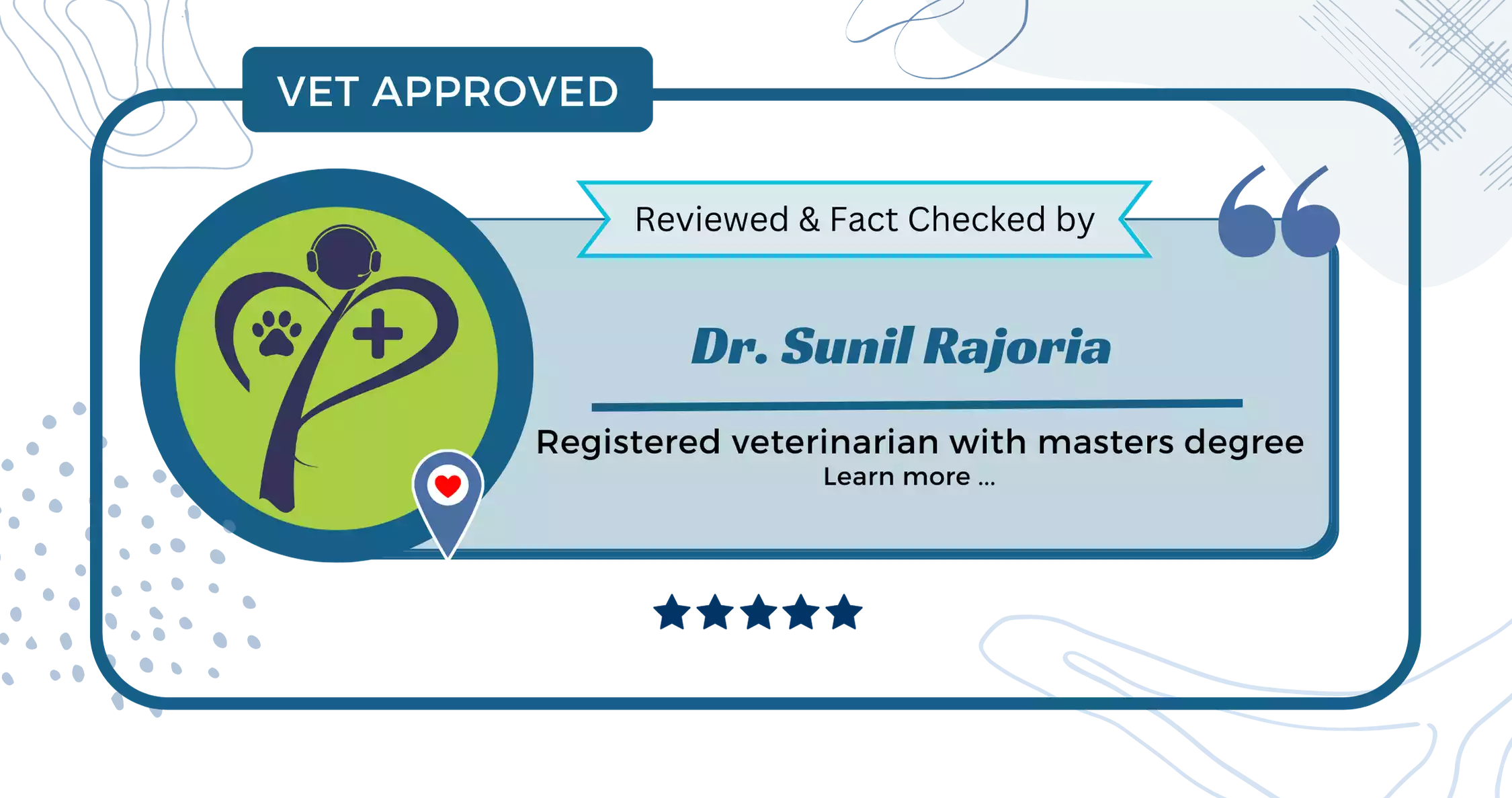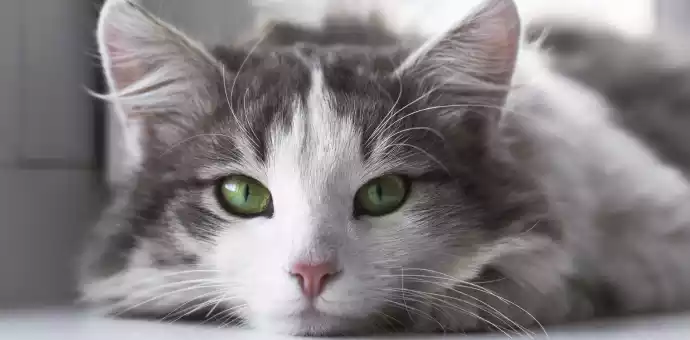Many pet owners are doubting Cerenia. They have a strong perception and are worried that Cerenia killed my cat?. To clarify this doubt we as Team Petspaa bring this topic to create awareness among pet owners regarding cerenia.
Table of Contents

Doubt: Cerenia killed my cat?
Individual experiences with drugs might vary, therefore it is critical to contact your veterinarian before giving a medication to your pet. A kitten died in a single incident after getting an injection of Cerenia for nausea and lethargy.
On the other hand, cerenia is usually regarded as safe for cats and is used to treat nausea and vomiting in cats aged 16 weeks and older.
What is cerenia?
Cerenia, also known as Maropitant Citrate, is an FDA-approved veterinary medication used to treat vomiting and motion sickness in dogs and cats. It is the first and only medication of its kind approved for these purposes in the animal healthcare industry.
- Brand name: Cerenia®
- Generic name: Maropitant Citrate
- Purpose: Antiemetic (prevents vomiting and motion sickness)
- Used for Dogs and cats

What does Cerenia do for cats?
Cerenia is a drug that veterinarians regularly use to address various conditions in cats. Cerenia has several important applications in cats, including:
- Motion sickness: Cerenia reduces nausea and vomiting when travelling.
- Nausea and vomiting: The medicine can cure vomiting produced by various factors, such as a stomach upset.
- Inflammatory bowel disease (IBD): Cerenia may be helpful in managing IBD symptoms.
- Pancreatitis: medication can assist cats that are suffering from pancreatitis.
Is cerenia essential to use in cats?
Cerenia isn’t necessary for all cats, although it can aid with vomiting caused by various diseases. It is important to contact a veterinarian to decide if Cerenia is appropriate for a cat’s particular case, and to adhere to the suggested dose and administration recommendations to reduce the risk of adverse effects.
Is cerenia safe for cats
Cerenia treatment can be very effective, but there are certain risks linked with it. The correct dosage is critical since using too much might be hazardous to your pet. In fact, taking too much medicine can be lethal.
Cerenia side effects cats
Cerenia side effects in cats are quite rare and short-lived, with pain from the injection being the most common. Some cats may experience a stinging sensation during the injection process, but this is transient and should fade within a minute.
Cerenia is often stored in the refrigerator to reduce the stinging sensation, but this can cause some cats to respond to the cool sensation rather than pain, Serious side effects are very rare.
Cerenia is an overall safe drug to give, and even when paying attention to dosages, our cat may still suffer some of the following side effects:
- Lethargy
- Excessive Dehydration
- Vomition and diarrhea
- Anorexia (Little Interest in Food)
- Low Energy
- Weight Loss
- Hypersalivation, and
- Injection site reactions

How long does Cerenia side effects cats last?
The most frequent side effect, discomfort from the injection, is usually gone within seconds, but certain other symptoms might linger for 24 hours or more, however, effects can stay longer in cats with liver or kidney disease. If you are concerned about the side effects of Cerenia in cats, please consult a veterinarian.
How to manage the side effects of Cerenia in cats?
To manage the side effects of Cerenia in cats, follow these steps:
- To ensure the proper dose and administration, follow your veterinarian’s instructions.
- Keep an eye on your cat for any unusual symptoms or side effects, such as lethargy, loss of appetite, diarrhoea, or injection discomfort.
- If your cat has discomfort as a result of the injection, this usually disappears within seconds. Refrigerating Cerenia may assist lessen the stinging feeling during the injection process.
- If your cat exhibits any symptoms of an allergic response, such as facial swelling or trouble breathing, take him or her to an emergency veterinarian right away.
Always consult your veterinarian if you have concerns about your cat’s reaction to Cerenia or if side effects persist or worsen. They may adjust the dosage or recommend alternative treatments to manage your cat’s condition.
What are the symptoms of Cerenia overdose in cats
Symptoms of a Cerenia overdose in cats may include weight loss, vomiting, soft stools, weakness, lethargy, excessive drooling, decreased heart rate, changes in electrolyte levels, and changes in your pet’s white blood cell count or bone marrow.
If you suspect an overdose, immediately seek emergency veterinary care or contact an animal poison control centre.

When shouldn’t Cerenia be given
Cerenia should not be given in certain situations. It suppresses vomiting, which can be problematic when there is a blockage in the stomach or intestine. Vomiting helps reduce food and fluid build-up, so using Cerenia in these cases can lead to rupture. Consult a vet before using Cerenia on your cat. If vomiting persists or there is no improvement, the vet should re-examine your cat.
Cerenia may not be safe for kittens under 16 weeks, pregnant or lactating cats. Caution is needed in cats with liver failure or insufficiency. Cats with known heart disease should not receive Cerenia as it affects essential heart functions.
Prevent Cerenia overdose in cats
To prevent Cerenia overdose in cats, it is important to follow the veterinarian’s prescribed dosage and administration instructions. Cerenia should only be given when recommended by a veterinarian, as they will determine the appropriate dosage based on the cat’s specific situation and needs.
Cerenia for cats with Liver and kidney disease
Cats known to be hypersensitive to Cerenia should avoid using the medication. It should be used carefully in cats that have liver or kidney disease. Pregnant or lactating cats require extra caution when using this.
Inform your veterinarian if your cat has liver and kidney disease. A 25-50% reduction in dose might be suggested by them. In case of any uncertainties or inquiries concerning the administration of Cerenia to your cat, you should consult with a veterinarian.
Cerenia dosing for cats
According to the manufacturer’s instructions, cats can take Cerenia once a day for up to five days.
It is vital to strictly adhere to the veterinarian’s instructions and not exceed the recommended dose. If a cat’s vomiting or nausea persists after the five-day therapy period, the veterinarian may need to review the cat’s condition and determine whether more treatment is required.
Recommended Cerenia dosage for cats
The recommended dosage of Cerenia Injectable Solution for cats aged 4 months and older is 1 mg/kg (0.45 mg/lb) of body weight, which is equal to 0.1 mL/kg (0.1 mL/2.2 lb) of body weight. It can be administered once daily for up to 5 consecutive days.
How cerenia is administered
Cerenia can be administered orally or through injection {The injectable Cerenia for use not just subcutaneously (under the skin), but also intravenously (into a vein or bloodstream)}. The dose and root of drug can be changed depending on the cat’s particular reaction to the drug and the underlying disease being treated.

Treatment for Cerenia overdose in Cats
Cerenia is well tolerated even at high dosages, and it would take at least ten times the regular amount to induce issues. If you believe your cat has received an overdose of Cerenia, contact your veterinarian right once for expert advice and treatment.
The degree of the overdose and the symptoms exhibited will determine the course of treatment. To eliminate the residual Cerenia from the cat’s stomach, the vet may induce vomiting or conduct gastric lavage in rare circumstances. Activated charcoal may also be used to prevent any residual drug from being absorbed.
To treat any dehydration or electrolyte imbalances brought on by the overdose, fluid therapy and supportive care may be required. In severe circumstances, the cat’s illness may necessitate hospitalization for intensive observation and management.
What is a substitute for Cerenia in cats
Yes, there are substitute treatment to Cerenia for managing vomiting in cats. Some of the options include:
- Antiemetic medications: A variety of antiemetic medications can be used to treat vomiting in cats. Maropitant (a Cerenia substitute), chlorpromazine, and ondansetron are a few examples. These medications act by inhibiting the brain receptors that cause vomiting.
- Change in Diet: A food intolerance or allergy can sometimes induce vomiting in cats. Switching to a hypoallergenic or easier-to-digest diet may help reduce vomiting.
- Probiotics: can assist to restore the balance of microorganisms in a cat’s intestines, which might be upset by vomiting. This may assist to lessen vomiting frequency.
It is critical to consult with a veterinarian before implementing any alternative therapies to confirm that they are safe and suited for your cat’s individual requirements.
Ondansetron vs Cerenia for cats
Criteria | Ondansetron | Cerenia |
Mechanism of Action | Blocks serotonin receptors in the gut and brain | Blocks neurokinin-1 receptors in the brain |
FDA Approval | Yes, for use in humans and some animal species | Yes, for use in dogs and cats |
Common Uses in Cats | Management of chemotherapy-induced vomiting, postoperative vomiting, and motion sickness | Management of acute vomiting, vomiting associated with motion sickness, and prevention of vomiting related to chemotherapy |
Dosage Form | Injectable and oral | Injectable and oral |
Dosage Frequency | Typically administered once daily | Typically administered once daily |
Common Side Effects | Constipation, diarrhea, lethargy | Decreased appetite, diarrhea, lethargy |
Long-term Health Risks | None reported | None reported |
Drug Interactions | May interact with other medications, including anti-seizure drugs and drugs that affect heart rhythms | May interact with other medications, including metoclopramide and certain antibiotics |
Cost | Generally less expensive than Cerenia | Generally more expensive than ondansetron |
Conclusion
In conclusion, we as PetsPaa can clarify “Cerenia killed my cat?” is not evident and it’s only a myth that is circulated among pet owners. Cerenia is a medicine that treats vomiting and motion sickness in cats. While it is usually regarded as safe for cats, individual experiences with medications might vary, so confer with your veterinarian before providing any prescription to your pet.
Cerenia can induce fatigue, dehydration, vomiting, diarrhoea, anorexia, weight loss, hypersalivation, and injection site responses, however, they are normally rare and temporary.
To reduce the possibility of adverse effects, it is important to adhere to the indicated dose and administration recommendations. Consult your veterinarian if you have any concerns about your cat’s reaction to Cerenia, or if adverse symptoms continue or worsen.

FAQs (Frequently Asked Questions)
Yes, you can give your cat cerenia without any doubt as it is safe and well tolerated by cats, So there is no worry to use cerenia.
The drug is short-acting and should wear off within 24 hours, while effects in pets with liver or renal illness may last longer. If you are concerned about Cerenia’s adverse effects on your cat, you should speak with a veterinarian.
Cerenia does not create long-term health concerns in cats because it is typically regarded as safe and well-tolerated by cats.
The recommended dosage of Cerenia Injectable Solution for cats aged 4 months and older is 1 mg/kg (0.45 mg/lb) of body weight, which is equal to 0.1 mL/kg (0.1 mL/2.2 lb) of body weight. It can be administered once daily for up to 5 consecutive days.
The FDA authorized the injectable Cerenia for use not just subcutaneously (under the skin), but also intravenously (into a vein or bloodstream) in 2016. Cerenia can be administered to cats aged 16 weeks and up to treat nausea and vomiting.






